Your body belongs to you. Your body isn't for someone else's pleasure. It's not an ornament.”
Christine Mason
Episode 102, orgasmic birth the podcast
The female body undergoes profound changes during pregnancy and childbirth. As the womb expands to nurture new life, the body’s shape and functions are transformed. However, societal attitudes have not always celebrated these transformations, with pregnant and postpartum women facing criticism and shame regarding their changing forms. In recent years, there has been a growing movement to reclaim the potent beauty and power of the birthing body. By reframing stretch marks as badges of motherhood and embracing the sensuality of breastfeeding, women are rediscovering the dignity and strength inherent to their reproductive experiences.
In this episode, we are shifting the focus on loving and valuing the changing bodies of pregnant and postpartum women. This week, Debra sits with Christine Mason, a mother, author, and founder of Rosebud Woman. Christine emphasizes the power of reconnecting with one’s inner radiance to overcome societal objectification and fully step into the beauty and power of female reproduction.
Tune in as Debra and Christine discuss the challenges with body image, ways to heal trauma and reconnect with one’s body, practical tips and perspectives on caring for the physical changes of pregnancy and childbirth, as well as honoring the transformative role of motherhood.
Episode Highlights:
02:49 Birth Experiences and Their Impact on Motherhood
08:40 Healing Trauma and Loving the Female Body
13:54 Reframing Stretch Marks
18:50 Postpartum Care and Recovery
24:10 Restoring the Power and Dignity of Women’s Bodies
Find full transcript at the bottom of this page.
Join Orgasmic Birth’s founder, Debra Pascali-Bonaro and become a doula! Debra offers DONA Approved Birth Doula Trainings throughout the year. Our next VIRTUAL training is June 2024.
doula training testimonials
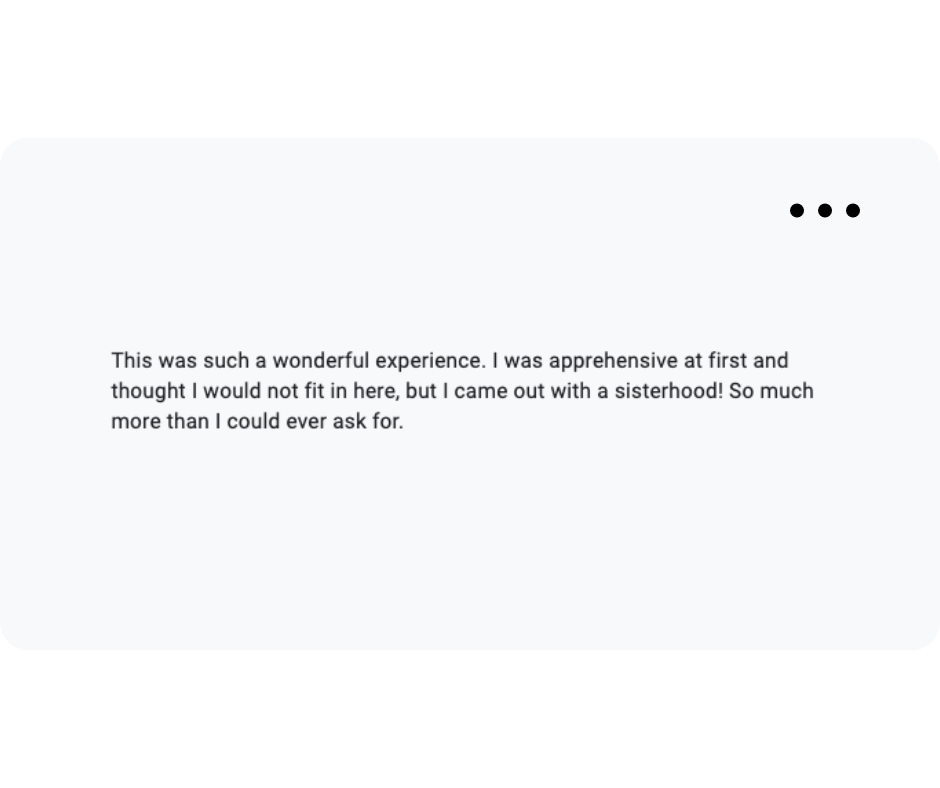
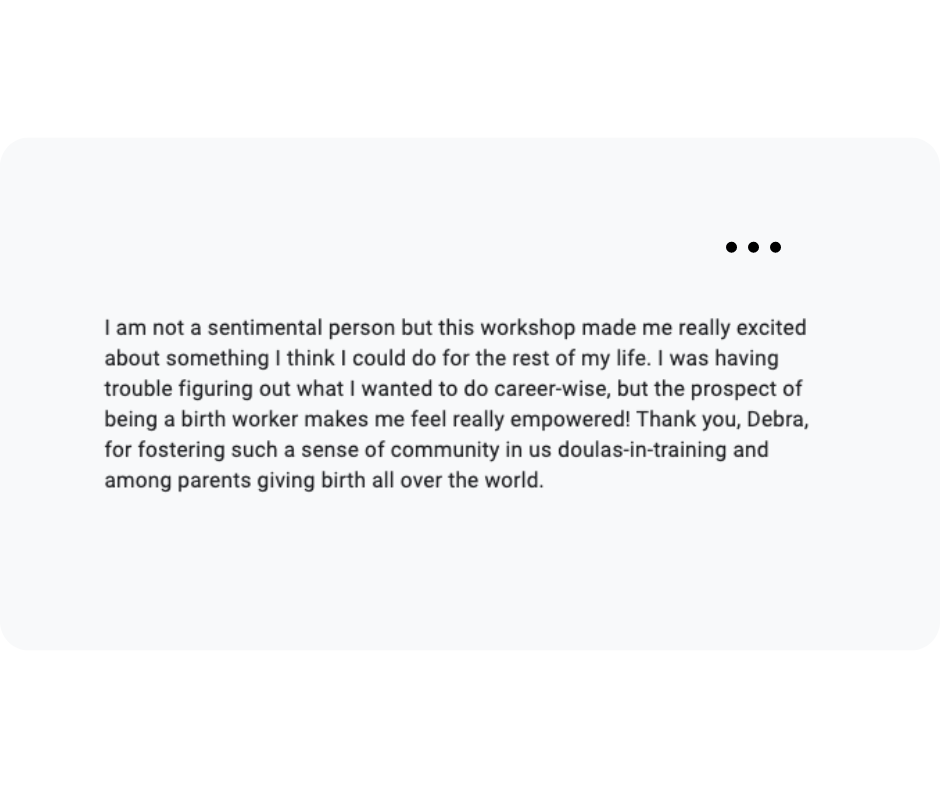
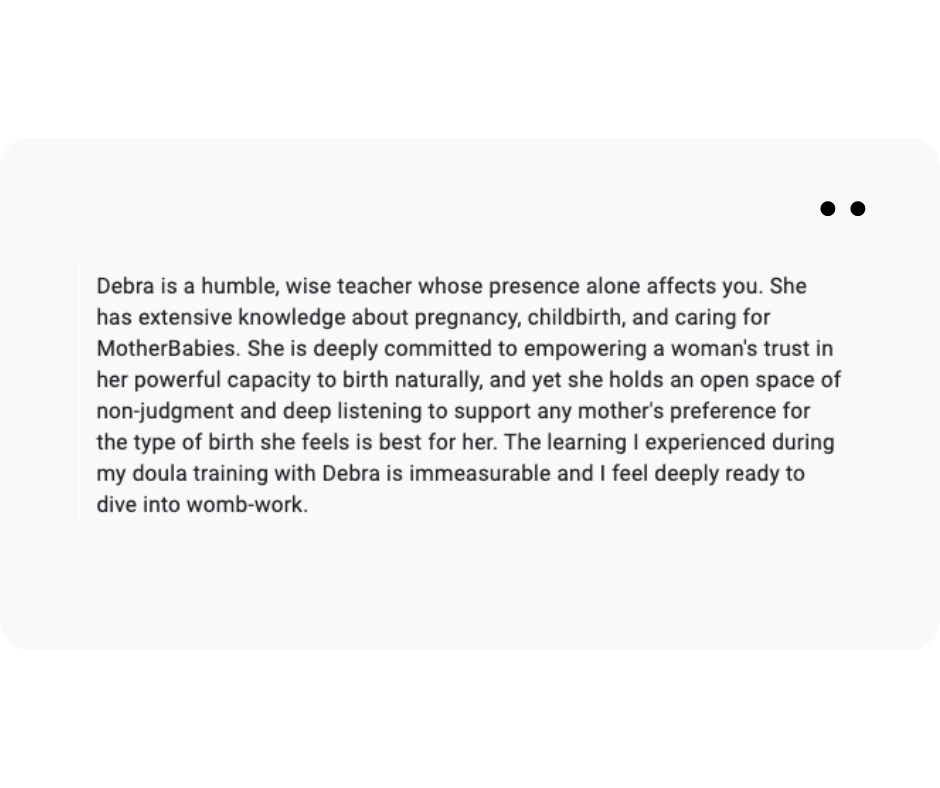
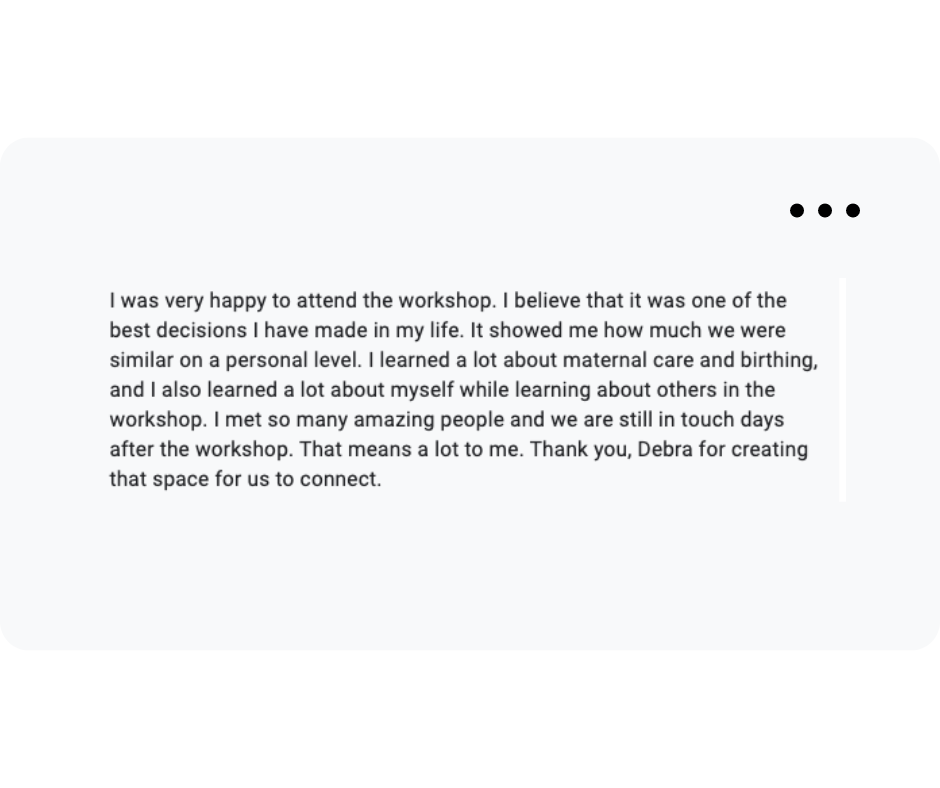
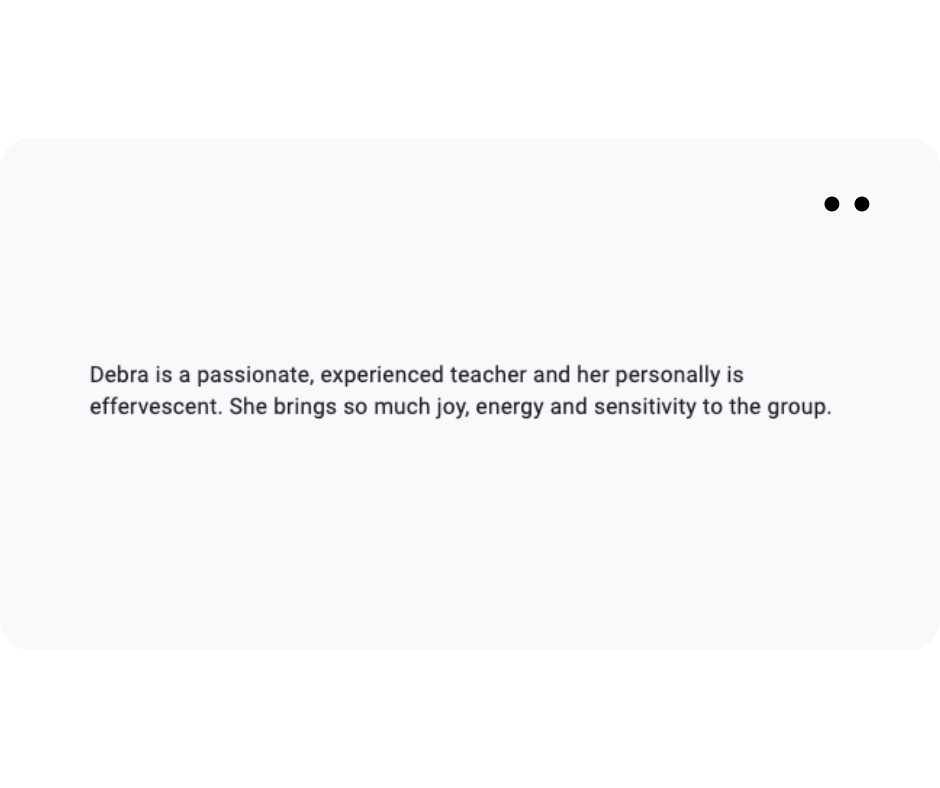
Debra Pascali-Bonaro: How do you feel about your body? If you’re pregnant, are you enjoying the expansion and the new fullness? If you’re postpartum, how do you feel with some of the new curves? And maybe if you’re like me, those stretch marks that appeared out of nowhere. Do you love your body? If you struggle to say you love your body.
Just yesterday, we spoke about pregnancy birthing and postpartum bodies in my Orgasmic Birth Practitioner Program. It’s a program for doulas, midwives, nurses, pelvic floor therapists and all providers who want to expand their practice with pleasure connecting childbirth and parenting to all our life sensuous, sexual and sacred. We all acknowledge the challenges that we had, and that so many people have in being more critical, rather than loving our changing bodies. My guest today is here to provide you with insights to loving your potent birthing body.
Hi, I’m Debra Pascali-Bonaro, Founder and Director of Orgasmic Birth, and host of the Orgasmic Birth Podcast. My guest today is Christine Mason. She’s the Founder of a leading plant based sexual wellness company, Rosebud Woman. I have to just say that I love all her products. She’s also a mom of four bio kids, a grandmother, a tantric sexual wellness advocate, author of eight books, and host of The Rose Woman Podcast with a deep interest in love, liberation and living in the vibration of essential joy. I had the great honor of meeting her about a year and a half ago at an amazing gathering in Congress that she put together.
So Christine, I am so honored to have you join us today.
Christine Mason: Thank you. I loved the way you’re talking at that event. And when you talked about orgasmic birth, you brought such big energy, joy and pleasure into the conversation. It’s my honor to come and chat with you.
Debra Pascali-Bonaro: It was a great connection, and that’s why I’m glad you’re here today. I always like to ask everyone to start if you have a birth story, and I think you have at least one to share. A little bit about what birth was like for you.
Christine Mason: As you mentioned, I have four bio kids. So the births were all very different. I think that’s common to a lot of women. Each one has its unique flavor. But I was very young. I was 18 when I got pregnant, and I didn’t have a living mother. I didn’t have a maternal line. I had no transmission of knowledge. So when it was time to go and have my son, I was in a hospital situation. It was a 36 hour labor, it was a forceps extraction. The nurses bullied me for being a teen mom. It was like a pretty traumatic experience. And then the next one, my daughter was super easy. It was also a hospital birth. The next one was almost 11 pound baby who arrived in two hours. They were the three in three years, Debra. So when I finally saw that I was coming of age at that point, I started diving into a more holistic sense of, what was my body? How was I related to my body? How does my spirit feel about my body? I began more conscious eating and more earth based traditions. And by the time I had my last child, who I guess was six years later, we decided to do a home birth.
Before I tell that story, the experience of that home birth was the first time I felt that potent power of actually dropping into the life-giving force of being in a female body. I did not feel it in the hospital births which were either partially medicated or just fast, noisy and distracting. So that birth was with Chicago midwives. They were really fighting the good fight bringing the midwifery community alive. And if you remember in the 90s, there was a lot of fighting against midwifery even being a thing as if you were somehow threatening a woman’s life rather than returning her to what is the natural process. And it was a very beautiful full day labor. I sang the blues in transition in the shower. He was birthed in the bathroom. There’s a lot of more releasing the body when it’s done in the bathroom. And then I can remember squatting in that goddess position, Goddess pose in yoga, you’re turned out and you’re squatting halfway, and your hands are up, and you’re grabbing something and just like roaring, and the baby coming out and feeling like, it was truly a moment of being very close to divinity. And then we didn’t name him for seven days. It was a beautiful, sweet postpartum period. We got to know this child, and it was really lovely. So I’ve had a lot of different experiences in a nutshell.
Debra Pascali-Bonaro: Thank you for sharing that. I think for so many people, we hear that journey that sometimes, it takes different birth experiences to bring you to the place and the way that you can fully step into your body, your birth. And that’s why I’m so glad that you’re telling this story to help people that are listening that stories are so powerful. And I acknowledge that you didn’t have that maternal input and linage. So hopefully, your story and the stories we tell here are helping people that have that, and reconnect the first time to step into that space.
Christine Mason: Yeah, and I would say in retrospect, that first birth, the one that was the big baby, and the last baby were both 42 week pregnancies. In the first hour, they induced me at 40 weeks. So that’s why that labor, I feel is like a Pitocin induction at 40 weeks, and I feel that’s why that labor was 36 hours. My baby’s just born big that early. So also to allow the spaciousness for the body to know when it’s time to birth, that was another learning from that process.
Debra Pascali-Bonaro: Interesting that they were all 42 weeks. Sometimes people have that different gestational phase, so wonderful that you were able to trust that in other pregnancies.
Christine Mason: Once they’re out, they’re out forever. There’s no hurry.
Debra Pascali-Bonaro: I like that. That’s right. A lifetime of mothering and parenting.
Christine Mason: That is true. That is true. My oldest is turning 40. It’s a really amazing thing that you enter into this journey. That’s such a cliche, but it goes through these phases. And there’s a period around their 20’s, and they’re all individuating. And then they come back, and this beautiful new friendship has emerged both between them, between me and them. It’s the relationship between an adult child and parent. It’s beyond delightful.
Debra Pascali-Bonaro: So special, right? We’re always changing, learning and growing. Well, that brings me to check your bursts and that experience has any impact on all that you’re doing today. What brought you to what you’re offering now?
Christine Mason: I would say that there’s a common way, I’m educated. I’m a privileged class in society. And yet, I had all of these traumatic experiences in my life. And every point of suffering in my life came from being in a female body. My mother was murdered in a violent crime for being a woman, and targeted for that. I had earlier sort of totally lacked any knowledge around periods or my sexuality. And so there was a lot of slut shaming and shaming, and not knowing what to do with that desire. There was an early pregnancy experience just being disadvantaged at work because of my gender and my parenting status. There were things later on that were related to confusions around, I had a uterine prolapse at one point, I ended up having surgery and didn’t really even understand my body. And as I got into the sort of more analytical frame around, why is God a man in the traditions I was in? Where did I get all these ideas around my body? And why don’t I know the science about my body? All of that sort of informed this like, I really want to feel good. I don’t want to be an object. I don’t want to starve myself to fit a model. So it wasn’t just the birth experience or the lack of maternal connection on the birthing. It was the sense of like, what could it mean to be whole and complete in a female body at this time in history? And are the things that I’m being steeped in and told my value comes from things that I actually believe?
And so by the time I started making products, I had already been doing yoga, been paying attention and trying to heal my own sexual wounds, working with trauma. My husband had had a very big bout with cancer. And during that time, we really dove into eating clean, organic, non toxic. So by the time I hit perimenopause and I was sort of like, I want something to reduce friction and feel better in my vulva and vaginal region. I was very conscious about the ingredients and the content that was going on my face, in my mouth, on my body, and I couldn’t find anything that I wanted. So the initial impetus was to make products that were whole and complete, and would honor the body. And we’ll remove the care of the body from a pharmacy or a pathologized situation, and return it to body care and self love. And then as I was researching and launching, I started to put the pieces together of how deeply this mission of restoring the right relationships, you yourself in a body was part of all of these other prior experiences that have happened. And the larger mission, more joy, less suffering, love and liberation in a female body came out of that. So sometimes, you don’t know why you’re doing it. It only becomes evident in retrospect. And that’s what happened here.
Debra Pascali-Bonaro: Yeah. So many experiences you just shared that just touched me, and what your journey has been, and how you use in some way, the pain of that to really find a purpose. And boy, are you really bringing such good products and information out to so many. I’d love for you to talk to all our listeners that are pregnant, postpartum parenting. We do have this issue around the body. A lot of people just really resonated with what you said, for all different reasons, not really celebrating and finding the joy and pleasure in a female body. What were some of the tips that you can share with them to really get that body potency to, as I say, love their body?
Christine Mason: I would say that even predating pregnancy, first of all, if you didn’t have someone as when you were young, like you were a child growing up and allowing you to affirm yes and affirm no that your body belongs to you, then I would say to start with that. Your body isn’t for someone else’s pleasure. It’s not an ornament. Although a lot of women do get power during a certain stage in their lives by being super attracted, hot girl syndrome or whatever. But that is a very short term and shallow situation. So coming into a relationship with who you are, and then developing that inner radiance, the unconditional love of your opportunity to live in a body is an inside job. So I feel like there’s a way of speaking to the essence to almost hypnotize your own self back to you, being your own mother, and imagining your own self being born. No mother ever looks at her baby in thought, almost anything other than what a miracle. How perfect. And that’s you, Mama. You’re no less today than you were on the day that you were born. And that these processes of living in a body each have their own stage and magic. And so if you have been objectified by the culture, it’s very likely that that little voice is living in your head, and you’re self objectifying today. So the first step I would say is to get out of the external gaze on yourself, and to go from the internal feeling like, what’s it like to live inside of your body? So that’s the first thing. The second thing is, maybe I could pause there just for a minute because that’s a big thing. We could probably spend a whole hour there. I’m talking about just those techniques on how to return to unconditional love, any places of judgment and shame, and let the light come in there. That’s a really deep practice, then pause.
Debra Pascali-Bonaro: Keep going because I’m loving this. So what would you say next?
Christine Mason: I would say then to restore your relationship to looking at what you consider beautiful, what you consider beautiful informed by the culture. And then get a much more expansive view of that by looking at all forms of beauty across all cultures at all times in history, and see what you think is beautiful. Who are you drawn to in the world? Do you objectify them as much as you objectify yourself? Are you as hard on them as you are on yourself? A little bit of cognitive stuff, and then restoring touch to your own body. So eventually, after we did the first intimate care product, I started doing body care and made this oil, this anointing oil. And anointing is a very odd reading and reverent practice. But with it, in the book it is like everyday, just try this for six weeks. Start at your feet. I love you feet, I love you shins. Apply the oil and do this whole affirming process. Really look at your skin and the way your joints are constructed. Just 10 minutes a day, loving and touching yourself. Come into not an avoidant relationship or a critical relationship, but just an appreciative lens on it. And then think about all the things that it’s done. My feet have carried me for going on 60 years now, this is insane. So there’s a process of reconnecting physically. And as you touch yourself, you’re also generating oxytocin. So I’m touching myself right now, which is a little weird on video. Like joking yourself, touch your whole body, touch your intimate areas and return to a sense of actually petting and loving yourself. And seeing your own being the mother movement, the stage of turning into a mother is a lot, it’s transformational in identity. And focus, it’s not always easy.
We talk a lot about whether it’s postpartum depression or beginning to feel invisible, or the legacy of the dishonoring of the housewife or the mom, that all sits with us. You’re supposed to be a mom and be everything else in the culture. But honoring that vitality, you’re literally making the future. If you are able to be present with your child in this deep way that they felt met emotionally, that they feel nurtured creating and raising a child who can be loved, know their own mind and be like a sovereign agent, and deep, deep being is the most important work that one can do on the planet. And to elevate yourself in that way, even if you’re doing other things like this is the most important work I can be doing. Also takes your attention off of the external gaze, do I still have a 26 inch waist? If you ever did, that’s me already. Tuning into what the culture equates, because I don’t believe that to be a beauty standard. So that piece about honoring and elevating your role. And then there’s a piece I want to call out around. Again, on the inner radiance, outer expression. I have a bunch of stretch marks on my hips. I don’t think that they’re very objectively pretty and so I started to kind of reframe them and go, these are my sergeant stripes for having each baby. Start to honor them as tattoos in a way. They mark my body, tell my life story. And that’s exciting. There’s a poem where I don’t want to end my life in a perfect body. I want to slide into home base, muddy and dirty with a champagne glass in one hand, and my face stained. You might as well enjoy it along the way. Same with your breasts. How they move, think, expand and the nipples change. It’s just part of being alive. It’s such a privilege to be in a body kind of shifting.
Debra Pascali-Bonaro: That is so beautiful. I’m going to take it to some other things because those posts and your products are good for these two. We have vaginas and labias that are healing after birth. Because you gave us so many practical things on loving this body, how can we have some tips on healing that for those people that are preparing for postpartum?
Christine Mason: Well, I’ll take it in two parts. The first is the actual skin of the labia, the vulva, the perineum, and then the pelvic bowl, the pelvic basin as a whole. So if you begin about six weeks prior to birth, doing perineal massage, which is like taking the thumb and putting it inside the introitus and then massaging, we have a product that’s great for that. Massaging that and stretching that area, you can really reduce the likelihood of an episiotomy or a tear, and creates more flexibility in the skin and trains it to open. And then also the body oil on the belly to help with the itching that come with stretch marks. Stretch marks are kind of genetic, but they do actually create as your skin expands so that can help with that and also reduce scarring. And then afterward, you know that you and all of the birth practitioners out there have so many tips on how to reduce swelling. And when it heals, start using bombs to restore the skin. Use cooling products to help with the burning. There’s a lot of things like that. But definitely perineal massage pre and post as soon as any stitches have healed, definitely be using gentle cleansers, no soaps, nothing like that on that part of the body. And then the inner and outer labia often change. They’ll hang differently. Expect that that’s going to happen. Another thing that sometimes happens is all the blood flow that comes into the vulva enlarges the clitoris for a really long time. So you can be super sensitive after birth, and it’s kind of an uncanny feeling because you’re like in pain. But you’re also slightly aroused, which is strange.
Some things that people don’t talk about is that when you’re nursing, the nursing creates contractions in the uterus, and it brings the uterus back into shape. But nursing can also have a sexual arousal component and people are like, why am I getting sexually aroused when I’m nursing? This is so strange. There’s like a shame that comes with it. But understand how these systems are all intertwined. I’ve got a couple of articles on the site that I’ll send you on nipple stimulation or arousal during breastfeeding, and why that’s not a problem, and how to roll with that. So aftercare definitely with product, but I would say the whole pelvic basin, think of it as this bowl. If you’re on video, I’m holding my hands up. If you’re on audio, I’m holding my hands up in an expanded basket shape and that you have in yoga practice. If you’ve done any yoga practices, you can tell you Mula Bandha, which is to pull the perineum up toward the tip of the tailbone like you’re putting a little cap on the tailbone. But in women, that mula bandha is also bringing the walls of the vagina together, front to back, and side to side. So you’re like pulling the front of the body toward the pull tailbone or the sacrum in, and then both of the hips come in, which kind of creates an elevation on the side. Tuck the tailbone slightly, and then pull up. It’s different from a kegel because a kegel is like controlling the urinary flow. But this is a different muscle group.
I would say either go online, or work with a pelvic floor therapist and begin that as soon as possible after birth. And even before birth to strengthen and create containment there. Because the one thing that I really disliked was urinary leaking. Incontinence after birth is a really super big pain. And you can train the body to at least eliminate that discomfort. Otherwise, you end up going in for a little, you’re either wearing pads all the time, or you’re going in for like a little sling installation where they sling the bladder up. And that doesn’t sound fun at all to me. So those are some pelvic basin exercises. And then let’s see, I guess another thing to discuss in postpartum is when are you going to get back to having sex, and to really understand the recovery period is different for everyone. And if you’ve had a tear, if you’ve had trauma in the vaginal canal in any way that’s beyond sort of normal tear from birth, it might take you a while. You might need extra lubrication, extra moisturizer. You might be so tired, you’re not interested at all. And to find the space and time for your own personal rest, your personal nourishment, encourage your partner, if you’d have one, to give you non sexual touch. Increase the length of foreplay. That’s really vital in this stage, because the blood flow and the foreplay will really help ease those early experiences coming back. And do not believe the myth that you can’t get pregnant while nursing. That’s all I’m telling you. That’s a message from my old, my past self to you in this current moment. You can’t get pregnant when you’re nursing, actually. Where would you like me to go from?
Debra Pascali-Bonaro: It is a topic of great joy, and I love it. You’ve given us so many tips. I want to just leave it to you. Do you have one last thing you’d like to share with people that are listening and might be pregnant or postpartum are considering it?
Christine Mason: I want to do a little Zoom out for a minute, which means there’s no right thing to do with pregnancy postpartum. It’s all throughout history. Women have ended their childbearing years without having a child. And now, it’s one in three in Tokyo, and one in four in the West. So there’s a movement in general to say having a child is not the only way to advance culture. We can advance life by actually bearing it and make the future that way. Well, we can do it through our creativity or intellect, so that there’s not a right or wrong whether a woman decides to have a child, and that there’s a lot of complexity in the decision to go ahead with the pregnancy at this time economically. I’m noticing that the age of first pregnancy is now close to 30 years old in the United States. There’s a vast shift going on, and to be really in a dialogue about how you want to create the experience of motherhood. Because sometimes when you’re in it yourself, you don’t even know that you’re part of a sea change that’s going on in the culture. Have original dialogues, don’t replicate what your parents did. Don’t try to do it alone. Really lean in and find moms groups, parenting groups, the parenting co-op, and create community around the experience of raising babies because it is all changing.
And then the other thing that I think is a huge thing is, I cannot understate the impact of religion on the understanding of the value of being in a female body. When we went to a dominant patriarchal religion and away from the goddess traditions, or the traditions that were more even like our initial era, the half and a half god where everybody has half their mother and half their father’s strength and receptivity. And that going back to like, there’s a reason that the potency of female reproduction, the ability to create life is a threat to wanting to regulate and take control, and having power over human reproduction is a thousand year plus journey now. 2000 year journey. I feel it being restored around the world in the first place. The journey to re-seeing yourself as a representation of divine creativity is to do it inside, and to hold yourself like a queen through this whole process. You are a bearing queen, creating life. And to honor that as deeply as you can in yourself and others, allow yourself to receive care. Allow yourself rest as much as you can, and enter into this process with great honor, reverence and dignity.
Debra Pascali-Bonaro: Beautiful words to really bring us to a close. I can’t thank you enough, Christine, and I’d love for you to share with everyone how they can find you, and follow you about your products.
Christine Mason: My daughter is now president of Rosebud Woman, and she is doing an amazing job. She’s also a mom. Her birth stories are different. That company which is intimate care, and bought reverend body care, all plant based, as I said, is that rosewoman.com. We also added a line of amazing candles this year, which are all about creating ritual. And then my personal site is xtinem.com, and Instagram and the podcast. That’s where I do the podcast and all of that. And we talk about a lot of things around trauma and liberation, and finding the path of joy and also some things on sexuality. Although more and more, I’m feeling like it’s an inside job. So we’re talking more about the development of inner life. So yeah, come find me. I love having conversations on this topic all the time. And there are over 800 articles that rosewoman.com and all aspects of birth, pregnancy, sexuality, menopause, perimenopause and cancers in women and healthcare, and advances in technology that can help you so come and use our resources. That’s one of the main reasons we exist.
Debra Pascali-Bonaro: Thank you so much, Christine. All of that’s in the show notes. For those of you that are listening, definitely look below wherever you’re enjoying our podcast. I want to thank you again, Christine. And thank you to all our listeners for joining us. We hope that you’ll comment, tag us on social media. We love to hear your favorite takeaways, and we hope you’ll join us next week for another episode of the Orgasmic Birth Podcast.

